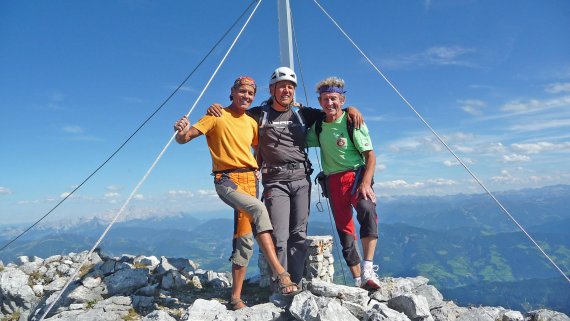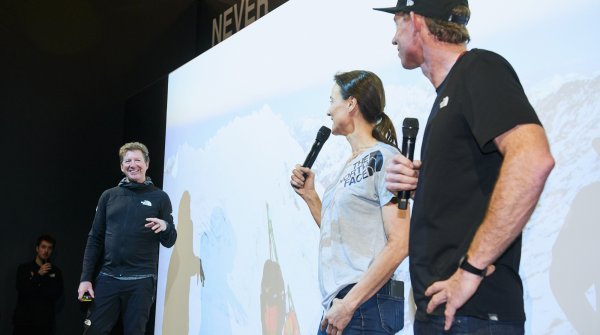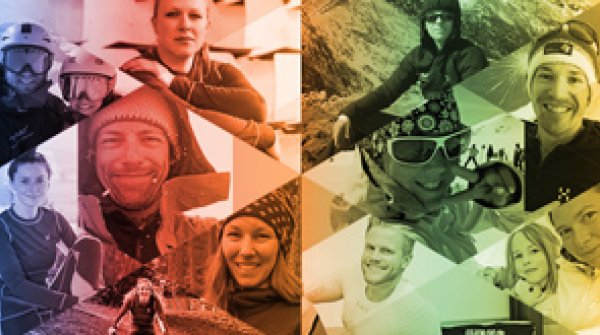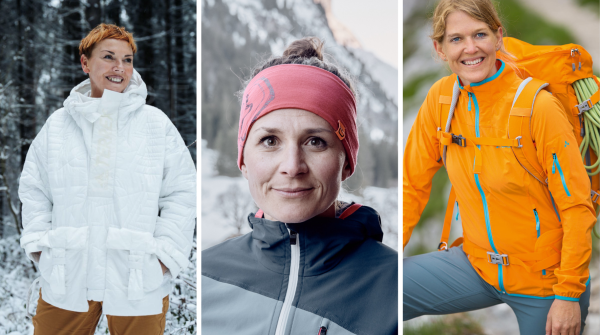
You have been blind since birth – and your favorite color is light blue?
Yes, and my world does have colors. I have those colors in my head, just like someone with sight. Think of an apple, one side is black, the other blue, and we both will have an image of this apple in our mind, even though none of us has actually seen it.
How do you accomplish that?
My brain doesn’t know that I am blind. It creates reality with the help of the remaining four senses, taste, touch, hearing and smell – and that happens in a completely different dimension as for someone with sight. A person who can see depends eighty percent on visual impressions, and there is hardly any room left for the other senses. In fact, sight is actually pretty unreliable and can easily be deceived – by colorful advertising images, for example. Sight is very much overrated. A blind person can “see” even without eyes by using the remaining four senses equally to create an image of the world.
You are saying that your ears, nose, mouth and hands work more reliably than those of a person with sight. Here is a provocative question: do you sometimes even have an advantage?
I would never say that I am better just because my perception works differently. My first climbing partner in 1988 was Hans Bruckner, an amazing mountaineer. Back then it was extremely difficult for me to find a partner for the mountains. But Hans had the guts and the heart to take on challenges, and went touring with a 22-year-old blind climber. People thought he was crazy. He got into big trouble: Your house will be sold at auction if something happens, a blind person should stay out of the mountains, they said. Hans responded: Just go climbing with Andy once and you’ll be able to get your own impression. You have no idea what you are talking about: when I am on a climbing rope with a blind guy, the climbing party is much better positioned than with someone who can see. If both the first and second person can see the spectrum remains more or less the same. But a blind person gathers completely different impressions.
How do you prepare for a tour?
I look for ten, twelve reports by other climbers. I evaluate them and commit everything to memory: where can you hear the sound of a brook, after how many hours climbing you have to turn in what direction, what is the access to the rock face like? And my wife helps me trace the route on the map with my fingers, which creates a virtual sketch in my head. I listen to the weather report and concentrate on what is between the lines.
Why between the lines?
Whenever they say that there will be light Föhn wind north of the Alps, it means that there will be a southern flow from the Mediterranean, and that stops the wind from the north. I take this knowledge on tour with me. If there is a thunderstorm looming, the atmosphere and air have a completely different feel to it, I notice how charged it becomes. I also react to humidity levels: I feel it when the air is extremely dry, or humid or electrically charged. Someone who has no experience probably won’t notice it until lightning and thunder occur. I, however, deduce from small details that follow a logic. Theoretically I know ahead of time that a thunderstorm is approaching, while my partner thinks everything is okay, the sky is still blue. Once we are on the peak and get a glimpse of the other side, we have to rush to get down quickly because everything is full of dark clouds. And then I’ll say, I just knew it.
You awe people with this knowledge in your lectures.
Sure, I could show off, but that is crazy, it isn’t some secret science. Nobody gets anything from just being in awe. People should not think, great, I just met another one who knows more than me. My message is, take advantage of your opportunities. And don’t just use your eyes, but use your other senses as well. In the mountains it takes team spirit, partnership. You have to realize that you won’t always make it alone, but you can make it anywhere together with others.
What else makes you love mountaineering?
The deceleration – when you are climbing at difficulty level 7 you cannot run like a sprinter. When we are climbing a slope at 7 000 meters of altitude even my seeing colleagues completely dial down their speed. This is good for a blind climber because it translates into a gain of a few milliseconds per step for evaluation. Speed disappears on a steep face. Down there in the valley, I have to set one foot before the other, one, two, and over again, and that is much more difficult for me. When I am climbing a steep face my feet as well as my hands are connected to the ground. Moving on all fours is much easier for me than walking upright.
You climbed six of the Seven Summits*. You are missing Mount Everest?
Every year I do about 200 tours, and among them are more exciting ones than the Seven Summits. I completed six of those peaks, to get to know the cuisine, culture and the people of all continents. That was the attraction for me; Mount Vinson in Antarctica is so different from Kibo in Africa. I’ve left my mark on other eight-thousand-meter peaks – the Seven summits are simply a marketing gag from the Eighties.
When you were a child, your parents let you ride your bike to school, and they took you and your sister who is also blind hiking and skiing.
I constantly begged and demanded: let’s do this, let’s do that. And my parents were desperate yet determined to provide us with all the opportunities as long as they could. They believed that when they aged their children would be isolated and alone. Of course they didn’t really know how to deal with our impairment. Though my personality gave them strength. I was always rearing to go, bruises and bloody knees didn’t stop me. Whoa, my parents thought, something is working. The result was that they tried the most peculiar things with us – skiing, ice skating, tobogganing, hiking, swimming – always asking us kids to give feedback. What was difficult? What worked best?
And then you discovered your passion for climbing?
Yes, it was one of the things that came easy to me. The steeper the trail, the better I was able to feel the terrain with my hands. When I was nine years old I climbed my first rock mountain and touched the cross on the peak. The thought that there are even steeper and more massive mountains out there hasn’t let me go since then.

What motivated you?
I need information from the outside. My school friends looked out the window and the world was there in front of them. When I wanted to “see” something, I had to go outside to comprehend it. I wanted to build my own image of the world. This hasn’t changed for me since then. Let’s just say that my sight doesn’t extend beyond the length of my arm: I see with my fingers. So I have to physically go where I want to discover something of the world. This is also how I discover the mountains, by exploring their north, east, south and west sides, their corners and ridges; it is the only way I can construct the complete image. I touch a mountain until I understand it: I don’t just climb it once, I try to experience it from all directions until I know it inside out and can sort of create a 3-D puzzle in my head.
How do you feel when you are on top of a peak?
At the top everything is free and airy. Reaching the peak means to me having experienced another day that showed me mental power trumped physical power, and I accomplished something difficult while enjoying it. I don’t understand people with healthy eyes who constantly sit watching TV and let their image of the world be generated by channels like ARD and ZDF.
What is important to you? What is your dream?
With every year that passes – I am 47 now – I think how irrelevant we really are. Those who just strive for records, who only think of faster, higher, more exciting, are unfortunately on the wrong track. Life’s goal is not to be the fastest. The goal is to self-determine one’s life, without constraints. However, in our hectic times everything is totally programed. If the weather isn’t great on day two of the vacation, people start to stress out. True happiness is to enjoy a feeling of freedom, to enjoy an unstructured day. If I weren’t a professional alpinist I would probably not think this way. People think they can’t afford to. But maybe they should try to and relax a bit. There is no institution that is responsible for your life. Doesn’t matter whether you work on an assembly line for an industrial giant, or you are upper management. You can never make anyone else responsible for your happiness, never, ever.

 OutDoor by ISPOOutDoor in transition
OutDoor by ISPOOutDoor in transition
- Awards
- Mountain sports
- Bike
- Fitness
- Health
- ISPO Munich
- Running
- Brands
- Sustainability
- Olympia
- OutDoor
- Promotion
- Sports Business
- Textrends
- Triathlon
- Water sports
- Winter sports
- eSports
- SportsTech
- OutDoor by ISPO
- Heroes
- Transformation
- Sport Fashion
- Urban Culture
- Challenges of a CEO
- Trade fairs
- Sports
- Find the Balance
- Product reviews
- Newsletter Exclusive Area
- Magazine




